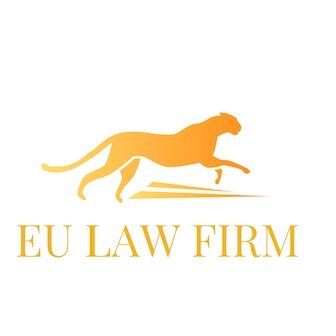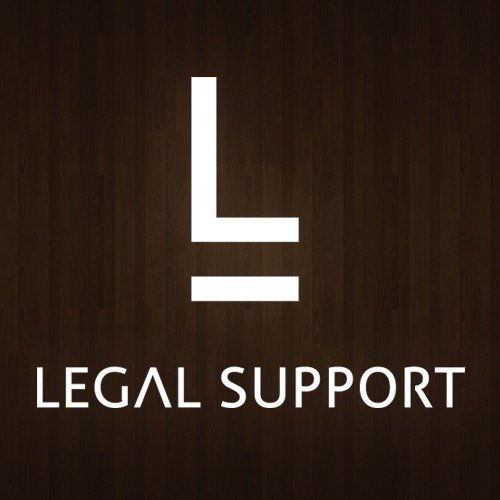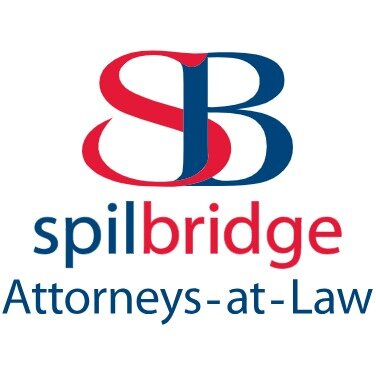Best Tax Increment Financing Lawyers in Riga
Share your needs with us, get contacted by law firms.
Free. Takes 2 min.
List of the best lawyers in Riga, Latvia
About Tax Increment Financing Law in Riga, Latvia
Tax Increment Financing (TIF) is a public funding mechanism that helps stimulate economic development within specific areas by diverting future tax revenues to current projects. In Riga, Latvia, TIF is utilized to support urban redevelopment, infrastructure improvements, and community projects. The program aims to attract private investments, create new jobs, and enhance public spaces by reinvesting the anticipated increase in tax revenues resulting from the development endeavors. Understanding the legal framework governing TIF is crucial for stakeholders involved in or considering engaging in such initiatives.
Why You May Need a Lawyer
Involving a lawyer in Tax Increment Financing can be crucial for several reasons. Common situations where legal assistance may be necessary include:
- Negotiating development agreements with local municipalities.
- Understanding and complying with regulatory requirements and conditions attached to TIF agreements.
- Resolving disputes related to property tax assessments or revenue forecasts.
- Assisting in the application process for initiating TIF projects.
- Ensuring that any agreements comply with local laws and administrative protocols.
Legal expertise can aid in navigating the complexities of TIF initiatives, ensuring legality and maximizing the benefits from such financial mechanisms.
Local Laws Overview
Several key aspects of local laws in Riga pertain specifically to Tax Increment Financing:
- Application Process: A detailed application must be submitted to municipal authorities, outlining the project's scope, anticipated benefits, and financial projections.
- Eligibility Criteria: TIF districts are designated based on specific criteria such as economic need, blighted areas, or redevelopment potential.
- Tax Revenue Allocation: The allocation formula for diverted tax increments is defined by local ordinances, often involving agreements with both public and private stakeholders.
- Project Monitoring: Development projects financed through TIF are subject to regular monitoring and reporting to ensure compliance with initial agreements.
- Amendment and Termination: The procedures for amending or terminating TIF projects are outlined in local legal frameworks, requiring justified cause and consensus among stakeholders.
Frequently Asked Questions
What is Tax Increment Financing?
Tax Increment Financing is a funding tool used to support economic development by using the future increase in property tax revenues generated by development projects to finance upfront expenses.
How does TIF benefit a community?
TIF can lead to revitalized neighborhoods, improved infrastructure, increased job opportunities, and enhanced public amenities by leveraging private investments.
Who can initiate a TIF project in Riga?
TIF projects can be initiated by municipal authorities or private developers, often in partnership, provided they meet certain eligibility criteria and have municipal approval.
Are there any risks involved with TIF projects?
Risks can include overruns in project costs, lower than anticipated tax revenue growth, and potential disputes over project scope and execution.
How long can a TIF district last?
The duration of a TIF district in Riga is typically predetermined, lasting until the project objectives are met or the debt is retired, often up to 25 years.
Is taxpayer approval required for TIF projects?
While direct approval from taxpayers is not generally required, public hearings and consultations are part of the process to gather community input and support.
How are TIF funds typically used?
TIF funds are used for infrastructure development, land acquisition, demolition of obsolete structures, environmental remediation, and other expenses meant to enhance development.
Can a TIF project be altered after approval?
Yes, but amendments typically require a formal process involving negotiation with stakeholders and approval from the relevant municipal authorities.
What happens when a TIF district is terminated?
Once a TIF district is terminated, the increment in tax revenues is distributed back to taxing bodies according to the usual arrangements, without being diverted for TIF projects.
Are there alternatives to TIF in Latvia?
Yes, other development incentives such as grants, loans, and special economic zones may also be available for urban redevelopment projects in Latvia.
Additional Resources
For individuals seeking further information about Tax Increment Financing in Riga, the following resources may be helpful:
- The Riga City Council's Department of Economic Development
- The Latvian Ministry of Environmental Protection and Regional Development
- Local business chambers and economic development organizations
- Legal and financial consultancy firms specializing in public finance
Next Steps
If you require legal assistance in navigating Tax Increment Financing in Riga, consider taking the following steps:
- Consult with a lawyer specializing in urban development or public finance to understand your specific needs.
- Schedule meetings with municipal authorities to clarify procedural requirements and gather essential information.
- Review existing ordinances and legislation related to TIF to familiarize yourself with eligibility and application processes.
- Attend public forums or information sessions on economic development initiatives in Riga.
Engaging with legal professionals early can streamline your involvement in TIF projects and enhance the success of your endeavors in this vital development tool.
Lawzana helps you find the best lawyers and law firms in Riga through a curated and pre-screened list of qualified legal professionals. Our platform offers rankings and detailed profiles of attorneys and law firms, allowing you to compare based on practice areas, including Tax Increment Financing, experience, and client feedback.
Each profile includes a description of the firm's areas of practice, client reviews, team members and partners, year of establishment, spoken languages, office locations, contact information, social media presence, and any published articles or resources. Most firms on our platform speak English and are experienced in both local and international legal matters.
Get a quote from top-rated law firms in Riga, Latvia — quickly, securely, and without unnecessary hassle.
Disclaimer:
The information provided on this page is for general informational purposes only and does not constitute legal advice. While we strive to ensure the accuracy and relevance of the content, legal information may change over time, and interpretations of the law can vary. You should always consult with a qualified legal professional for advice specific to your situation.
We disclaim all liability for actions taken or not taken based on the content of this page. If you believe any information is incorrect or outdated, please contact us, and we will review and update it where appropriate.

















